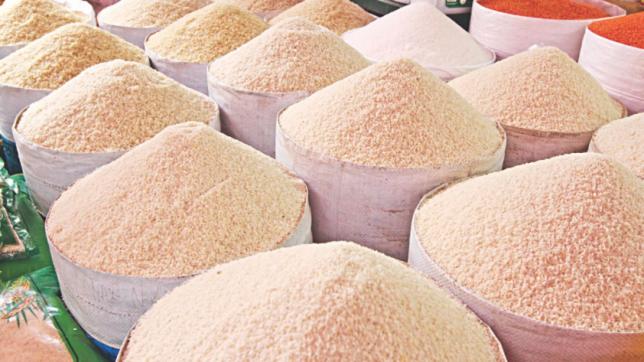Rice losing micronutrients for multiple polishing

Rice grains are losing micronutrients owing to multiple polishing at mills, leading to nutrition deficiencies and different diseases, top food ministry functionaries said yesterday calling on millers to fortify the staple with vitamins and minerals.
“The way you (mill owners) are polishing rice three-four times to make miniket; to make those grains smooth, there is no denying the fact that vitamins are lost,” said Food Minister Md Qamrul Islam.
“In absence of these vitamins in rice, incidence of diabetes, malnutrition-related diseases are increasing. We are becoming of short stature,” he said.
Islam was addressing a meeting of the Bangladesh Auto Major and Husking Mill Owners Association, which comprises nearly 18,000 small and large rice mills, at Pan Pacific Sonargaon Dhaka.
“We expect you to take steps to provide nutritious rice to us,” he told the millers who process and market a majority of the around 5 crore tonnes of paddy Bangladesh annually produces.
He said ensuring micronutrients in rice was inexpensive and one micronutrient-producing mill could ensure fortification supplies of seven to eight mills.
Fortification is a practice of deliberately increasing the content of an essential micronutrient in a food, so as to improve the nutritional quality of the food supply and provide a public health benefit with minimal risk to health, according to World Health Organization.
“Ensuring nutrition enriched rice is urgent for the nation. We request you to take the step in the greater interest of the nation,” said Islam.
He said the government, with World Food Programme's support, was distributing nutrient-enriched rice in 20 districts under poor-friendly and Vulnerable Group Development programmes to address micronutrient deficiency among the poor.
“We will gradually expand the coverage of the distribution of fortified rice in all upazilas of the country,” he said.
KM Layek Ali, the association's general secretary, urged the government to increase the duty on rice import from the present 28 percent and include millers' representatives in the government's national procurement committee.
Islam said his ministry would discuss the proposal.
He said rice production rose after last year's slump induced by repeated floods. “This year we do not want to import a single tonne of rice,” said Islam.
He also called upon millers to gradually close down traditional husking mills.
“Try to shift from husking mills to automatic ones, even if it means forming cooperatives. Husking mills will be unable to survive. The market will take its own course,” said Food Secretary Shahabuddin Ahmed.
He, however, pointed out that traditional husking pedals, which were in use in the past, used to retain micronutrients.
Md Arifur Rahman Apu, director general of the Directorate of Food, said rice processed through husking pedals was no longer available today for the rise of automatic milling.
“I visited a mill which polishes rice six times. Fine and white rice comes after milling. This rice looks beautiful but contains no mineral, no vitamin. As a result, all our children, irrespective of the rich and poor, suffer from micronutrient deficiency,” he said.
“Micronutrient is essential if we want to build an intellectually sound nation,” he said, citing that seven states in the US have rules making rice fortification compulsory.
He said sales of rice would increase if millers produce and market zinc and other micronutrient-rich rice.
